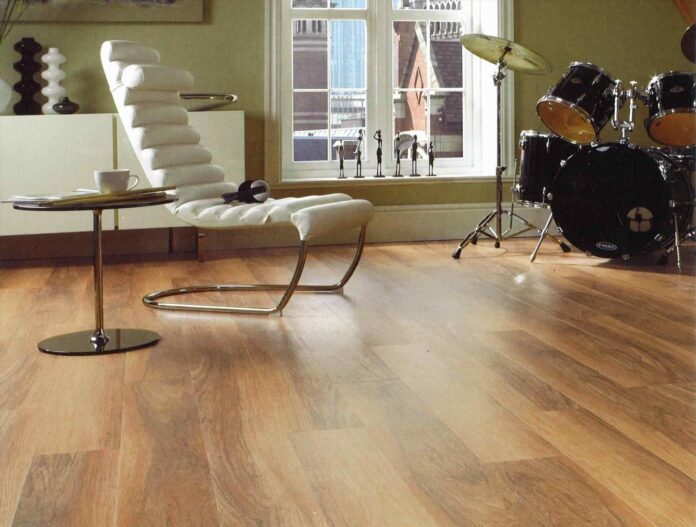Are you tired of constantly adjusting your thermostat and dealing with uneven heating in your home? Look no further than home radiant heating systems for a more efficient and effective solution. These systems have been gaining popularity in recent years due to their numerous benefits. From improved energy efficiency to even heating throughout your space, there are many reasons to choose radiant heating systems over traditional heating methods.
Understanding Radiant Heating Systems
Radiant heating systems may seem like a complex concept, but once you understand how they work, you’ll see why they are gaining popularity in the heating industry. Unlike traditional forced-air systems, which rely on blowing hot air through vents, radiant heating systems work by radiating heat directly from a warm surface. This surface can be a floor, wall, or even a ceiling panel. The heat is then transferred to objects and people in the room, creating a comfortable and even warmth throughout the space.
One key advantage of radiant heating systems is their ability to eliminate the problem of uneven heating. With traditional heating methods, you may experience hot spots near the vents and cold areas far from them. Radiant heating systems provide consistent warmth throughout the entire room, ensuring that every corner is heated evenly.
Another benefit of radiant heating systems is their energy efficiency. Since the heat is directly transferred to objects and people, there is less heat loss compared to forced-air systems. This means that radiant heating systems require less energy to maintain a comfortable temperature, leading to potential energy savings and lower heating bills.
Understanding The Radiant Heating System Cost
Radiant heating systems offer many advantages, but it’s important to understand the costs associated with these systems before making a decision. While the upfront cost of installing a radiant heating system may be higher than traditional heating methods, the long-term benefits can outweigh the initial investment. One of the main cost factors to consider is installation. Radiant heating systems require specialized installation, which may involve removing existing flooring or walls.
This can add to the overall cost of the project, but the end result is a more efficient and effective heating system. Another cost consideration is maintenance. Radiant heating systems generally require less maintenance compared to forced-air systems. However, if any issues arise, it’s important to have a professional technician address them promptly to avoid any potential problems down the line.
Energy savings can also play a significant role in the overall radiant heating system cost. These systems are known for their energy efficiency, which can lead to lower heating bills in the long run. By providing consistent and even heating throughout your home, radiant heating systems can help you save money on your monthly energy expenses.
Optimizing Comfort With Radiant Wall Heating
When it comes to achieving optimal comfort in your home, radiant wall heating systems are a game-changer. These innovative systems provide an efficient and effective way to heat your living space, ensuring that every corner of the room is warm and cozy. It works by installing heating panels behind your walls. These panels emit radiant heat, which then warms up the walls and radiates into the room, creating a comfortable and even heat distribution. Unlike traditional heating methods that rely on blowing hot air, radiant wall heating eliminates the need for vents and ducts, providing a cleaner and quieter heating solution.
One of the main advantages of radiant-wall heating is its ability to eliminate drafts and cold spots. With this system, you no longer have to worry about sitting next to a cold wall or experiencing chilly drafts near windows. The walls themselves become a source of warmth, enveloping you in cozy comfort. In addition to providing consistent warmth, it also offers enhanced control over your home’s temperature. With individual room thermostats, you can adjust the heat in specific areas of your home, ensuring that each room is heated to your desired comfort level. This flexibility allows for personalized comfort and energy savings, as you can easily lower the heat in unoccupied rooms.
Another benefit of radiant-wall heating is its ability to create a healthier living environment. Unlike forced-air systems that blow dust and allergens around, it does not circulate air, minimizing the risk of respiratory issues and allergies. The lack of vents and ducts also reduces the chance of mold growth, ensuring cleaner air quality in your home.
Exploring The Efficiency And Benefits Of Electric Radiant Heat Ceiling Panels
Are you looking for an efficient and effective heating solution for your home? Look no further than electric radiant heat ceiling panels. These innovative systems provide a range of benefits that can enhance the comfort and energy efficiency of your space. One of the main advantages of electric radiant heat ceiling & panels is their efficiency. These panels convert electricity into heat, minimizing energy loss and maximizing the effectiveness of the heating system.
By radiating heat from the ceiling, these panels provide even warmth throughout the room, eliminating cold spots and drafts. Additionally, electric radiant heat ceiling & panels offer a quick and easy installation process. Unlike other radiant heating systems that may require removing existing flooring or walls, ceiling panels can be easily mounted onto the ceiling surface. This makes them a versatile option for both new construction and retrofit projects.
In terms of control, electric radiant heat ceiling & panels offer individual thermostats for each panel, allowing you to customize the temperature in different areas of your home. This level of control not only enhances comfort but also contributes to energy savings by allowing you to only heat the rooms that are in use.
The Comfort And Health Benefits Of Radiant Heating Systems
Radiant heating systems not only provide efficient and effective heating, but they also offer numerous comfort and health benefits. One of the main advantages of radiant heating systems is their ability to create a cozy and comfortable environment throughout your home. Unlike traditional heating methods that rely on blowing hot air, radiant heating systems work by radiating heat directly from a warm surface, such as the floor, wall, or ceiling panel. This means that you can enjoy even heat distribution without any cold spots or drafts.
In addition to optimizing comfort, radiant heating systems also contribute to improved health and well-being. Unlike forced-air systems that circulate air and allergens, radiant heating does not blow air around, minimizing the risk of respiratory issues and allergies. The absence of vents and ducts also reduces the chance of mold growth, ensuring cleaner air quality in your home.
 Enhancing Energy Efficiency With Infrared Floor Heating
Enhancing Energy Efficiency With Infrared Floor Heating
Enhancing energy efficiency is a top priority for many homeowners, and infrared floor heating is an excellent solution to achieve just that. This innovative system utilizes the natural properties of infrared radiation to efficiently heat your home from the ground up.
Unlike traditional heating methods that rely on forced-air systems, which can lead to heat loss through ducts and vents, infrared-floor heating works by emitting radiant heat directly from the floor surface. This means that the heat is delivered exactly where it is needed, minimizing energy waste and maximizing efficiency.
One of the main advantages of infrared-floor heating is its ability to provide consistent warmth throughout the entire room. By heating the floor surface, the heat is evenly distributed upwards, creating a comfortable and cozy environment from floor to ceiling. No more dealing with cold spots or drafts that can make your space feel uncomfortable.
It also offers the added benefit of improved indoor air quality. With no forced air circulating dust, allergens, or other particles, the risk of respiratory issues and allergies is significantly reduced. This is especially beneficial for those with asthma or allergies, as the absence of vents and ducts prevents the accumulation of dust and mold.
FAQs
How Do Radiant Heating Systems Work?
Radiant heating systems work by radiating heat directly from a warm surface, such as a floor, wall, or ceiling panel. This heat is then transferred to objects and people in the room, creating a comfortable and even warmth throughout the space.
Are Radiant Heating Systems Energy-Efficient?
Yes, radiant heating systems are known for their energy efficiency. Since the heat is directly transferred to objects and people, there is less heat loss compared to forced-air systems. This means that radiant heating systems require less energy to maintain a comfortable temperature, leading to potential energy savings and lower heating bills.
How Much Does It Cost To Install A Radiant Heating System?
The cost of installing a radiant heating system can vary depending on factors such as the size of your space, the type of system you choose, and any necessary modifications to your existing infrastructure. While the upfront cost may be higher than traditional heating methods, the long-term benefits can outweigh the initial investment.
How Do Radiant Heating Systems Compare To Other Heating Methods In Terms Of Comfort?
Radiant heating systems provide even heat distribution throughout your space, eliminating hot spots near vents and cold areas far from them. This ensures a comfortable and cozy environment in every corner of the room.
Conclusion
Incorporating home radiant heating systems into your home is a smart choice for both comfort and efficiency. These systems offer a range of benefits, from even heating distribution to energy savings. By eliminating the problem of uneven heating and cold spots, radiant heating systems ensure that every corner of your space is warm and cozy. Plus, with their energy-efficient design, you can enjoy lower heating bills while maintaining a comfortable temperature throughout your home.
| Other Good Articles to Read |
| Niche Blogs Connect |
| Blogs 97 |
| Blog Stitution |
| Blogs Unplugged |
| Blogs Cotch Rouge |
| Blog Signatr |
| Blog Sintonias |
| Blog Zilla |
| Consumer Forums |
| Finance Forums |
| G Blogs |
| Too Blog |

